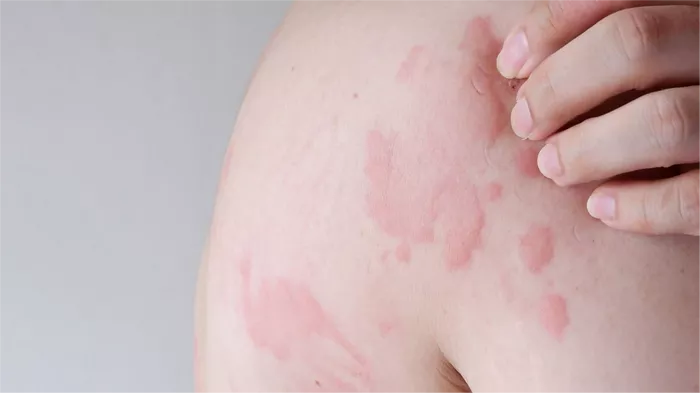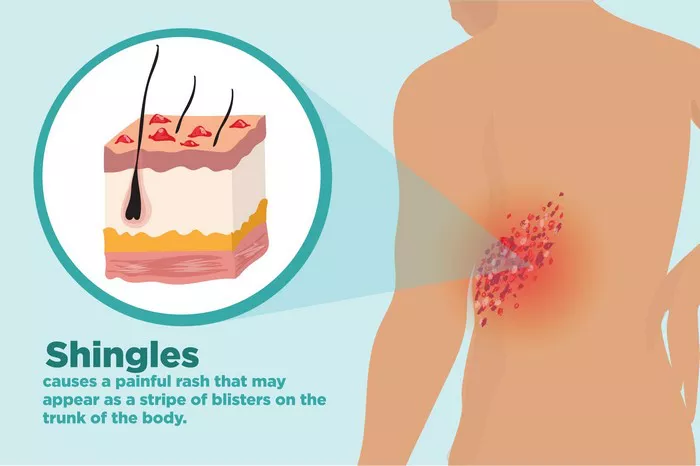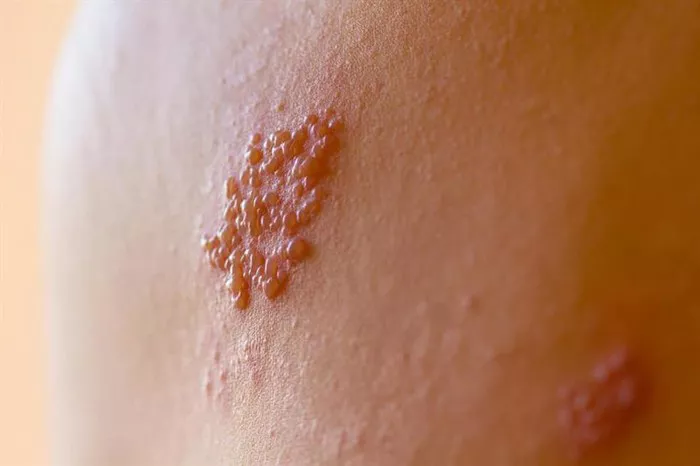Hives, also known as urticaria, are a common skin condition characterized by red, raised, and itchy welts that can appear suddenly and disappear just as quickly. While hives are usually harmless and short-lived, their sudden onset and discomfort can be alarming. Understanding the triggers behind this perplexing skin reaction is crucial for both prevention and effective management.
The Intricacies of Hives
Hives manifest as red or pink welts on the skin, often surrounded by an area of redness known as a flare. These welts vary in size and shape and can appear anywhere on the body. The itching and burning sensations they cause can range from mild to severe, making it a distressing experience for those affected.
The condition occurs when certain cells release histamine and other chemicals into the bloodstream, leading to an inflammatory response in the skin. Histamine is a key player in the body’s immune system, but in the case of hives, its release is excessive and triggers the characteristic welts.
Understanding Triggers: Unmasking the Culprits
Identifying the triggers of hives is often a complex process, as they can vary from person to person. However, there are common factors and conditions that have been associated with the onset of hives. Let’s delve into the intricacies of these triggers to gain a comprehensive understanding.
1. Allergens: The Classic Culprits
Allergens are perhaps the most well-known triggers of hives. Substances like certain foods, medications, insect stings, or environmental factors can lead to an allergic reaction, causing the release of histamine and other chemicals. Common food allergens include nuts, shellfish, and eggs, while medications such as antibiotics and non-steroidal anti-inflammatory drugs (NSAIDs) are notorious for inducing hives.
2. Stress: The Silent Provoker
The mind-body connection is a powerful force, and stress has been identified as a significant trigger for hives. Emotional stress, anxiety, and tension can stimulate the release of stress hormones, contributing to the release of histamine and the subsequent appearance of welts. Managing stress through relaxation techniques and mindfulness may prove beneficial for individuals prone to stress-induced hives.
3. Infections: A Hidden Trigger
Viral or bacterial infections can act as hidden triggers for hives. The body’s immune response to an infection can lead to an overproduction of histamine, resulting in the characteristic welts. Common infections associated with hives include the common cold, urinary tract infections, and sinus infections.
4. Physical Factors: The Aggravators
Physical factors such as pressure, friction, or temperature changes can be triggers for hives. This condition, known as physical urticaria, can manifest in response to activities like scratching the skin, exposure to cold or heat, or even pressure from tight clothing. Understanding and avoiding these physical triggers is crucial for managing and preventing hives.
5. Autoimmune Factors: The Body’s Internal Confusion
Autoimmune disorders, where the immune system mistakenly attacks the body’s own tissues, can be linked to chronic hives. Conditions like lupus and rheumatoid arthritis have been associated with an increased risk of developing hives. Unraveling the complexities of autoimmune factors and their role in hives is an ongoing area of research.
6. Hormonal Changes: The Gender Factor
Hormonal fluctuations, particularly in women, can play a role in triggering hives. Menstruation, pregnancy, and hormonal therapies may influence the likelihood of experiencing hives. Understanding the interplay between hormones and the immune system is crucial for managing hives in individuals affected by hormonal changes.
Navigating the Diagnostic Maze: Seeking Professional Guidance
Given the myriad triggers and complexities associated with hives, seeking professional medical advice is essential for accurate diagnosis and effective management. A dermatologist or allergist can conduct a thorough evaluation, including a detailed medical history, physical examination, and, if necessary, allergy testing.
Skin tests, blood tests, and other diagnostic tools may be employed to identify specific triggers and underlying conditions contributing to hives. Once the triggers are pinpointed, a tailored treatment plan can be developed to address the root cause and provide relief from symptoms.
Managing Hives: Strategies for Relief
While understanding the triggers is crucial, managing hives effectively involves a multi-faceted approach. Here are some strategies that individuals with hives can consider for relief:
1. Antihistamines: Frontline Defense
Antihistamines are the most common medications prescribed for hives, as they counteract the effects of histamine and alleviate itching and swelling. Non-sedating antihistamines are often preferred, as they allow individuals to carry on with their daily activities without drowsiness.
2. Avoiding Triggers: Proactive Prevention
Identifying and avoiding specific triggers is a key component of managing hives. Keeping a detailed diary of activities, foods, and environmental factors can help individuals pinpoint patterns and make informed decisions to minimize exposure to triggers.
3. Stress Management: Calming the Mind and Skin
Incorporating stress management techniques such as meditation, deep breathing exercises, and yoga can be beneficial for those whose hives are triggered by stress. A holistic approach that addresses both mental and physical well-being can contribute to long-term symptom relief.
4. Topical Treatments: Targeting Itchy Welts
Topical corticosteroids or calamine lotion can provide localized relief for itching and redness associated with hives. These treatments are particularly useful for managing smaller areas of affected skin.
5. Prescription Medications: Tailored Solutions
In cases of chronic or severe hives, healthcare providers may prescribe stronger medications such as corticosteroids or immune-modulating drugs. These medications are typically reserved for situations where other treatments have proven ineffective.
6. Allergen Immunotherapy: Long-Term Solutions
For individuals with hives triggered by specific allergens, allergen immunotherapy may be recommended. This involves exposing the body to small, controlled amounts of the allergen over time, gradually desensitizing the immune system and reducing the likelihood of an allergic reaction.
Conclusion
Hives remain a complex and often mystifying skin condition, with triggers that span a wide range of factors. Understanding these triggers is a crucial step in managing and preventing hives effectively. From common allergens to emotional stress, the interconnected web of factors contributing to hives requires a personalized approach to diagnosis and treatment.
By unraveling the mystery of hives and employing a comprehensive strategy that addresses both triggers and symptoms, individuals affected by this condition can regain control over their skin health. Seeking professional guidance, adopting stress management techniques, and staying vigilant about potential triggers are essential steps in navigating the complex terrain of hives and finding lasting relief.


























